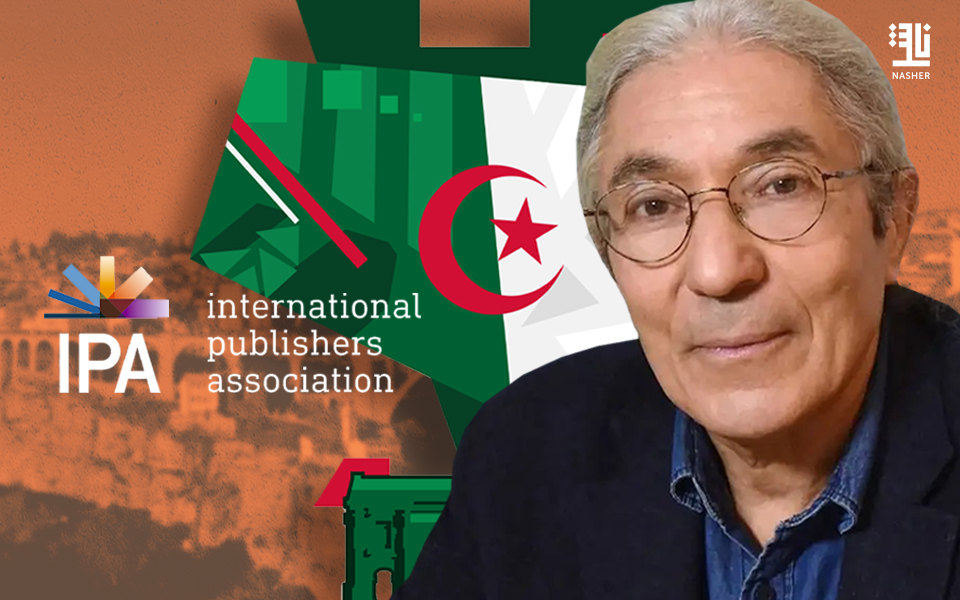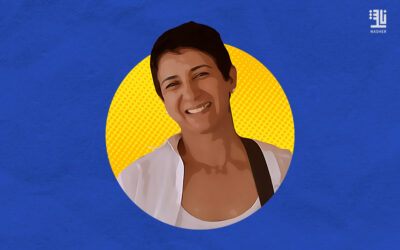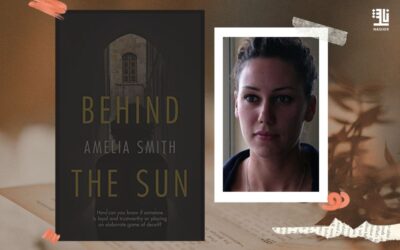In the UK, the need for more diversity in publishing – both in terms of the work force and in what is published – remains a live and potent issue. Numerous initiatives have been started to address this question and the creator of one such venture, 23-year-old Salma Ibrahim, recently won one of the London Book Fair’s prestigious Trailblazer Awards given to people under 30 in the publishing industry who are ‘blazing a trail’ are clearly names to watch for the future.
Ibrahim won the award for the organisation she established in February called Literary Natives which is a body that champions writers of colour through events, workshops, and sharing job opportunities in publishing. Nasher spoke with Ibrahim soon after the awards ceremony in London.
Why did you start Literary Natives?
I’m actually an aspiring novelist so I had been writing my first novel for a couple of years when I realised that a lot of my obstacles were either mental or infrastructural. The workshops and writing groups I was going to for support and just to meet other writers were overwhelmingly white and middle class. I’m a fairly confident person so I tried to push past these feelings of alienation but I couldn’t help it, it was starting to affect my creativity. I needed to remind myself that people like me could be writers and could find a place in the publishing world.
At the time I had also just graduated from a university that was also very white and middle class (at least in the humanities department) and I had fought many identity battles there as a student and as an aspiring novelist. Literary Natives was borne out of a fierce desire to carve out a place for myself and other writers of colour in the literary scene. I was intrigued by the feelings of belonging and safety that books and writing have offered in my life and also the lives of millions of avid readers and writers around the world. The name Literary Natives is a play on the idea of belonging and citizenship for people who may have complicated national and ethnic identities but feel so at home when they are writing.
Can you tell us about some specific initiatives it has put in place or worked on?
We have put on 7 events and collaborated on other events for different organisations over the past year. Our first few events had a rather consistent structure to blend writing discussions with live readings and performances: so the first one featured a panel of debut authors of colour who talked about what it was like to write and publish their books, followed by live poetry and storytelling, and then we had competitions to win books and also ample time at the end for attendees to talk and network. One of our events was programmed for the annual nation-wide Refugee Week and we did this at the Migration Museum in Lambeth. That was one of my favourite events because everyone had something to contribute to the discussion of migration and being from here, there and everywhere.
At the end of 2018 we re-built our website and now we update it with jobs in creative writing and publishing in London, but in the future we hope to make this a lot more comprehensive with jobs in publishing and creative writing all over the world and more resources and advice on writing. One of our goals for 2019 is to expand our digital reach and create more online opportunities and spaces for writers such as webinars with experts in publishing.
We are also organising more events and a series of different workshops for 2019. Our goal is to work a lot more closely with communities who wouldn’t normally have access to writing events and initiatives. We have a partnership with Hachette UK’s Changing The Story [diversity initiative] to run an event where writers of colour can meet literary agents and learn more about the querying and submission process.
Do you think publishers are getting the message about diversity now?
One of the biggest paradoxes of our times is how there seems to be no link between how often a topic is discussed (online) and how much people actually understand it. Diversity is extremely misunderstood and it seems like publishing arts organisations have adopted a very superficial view of this concept : to simply create schemes and internships where people of certain marginalised groups get shoehorned into a box and then forgotten. For the publishing world to practice diversity correctly, they need to think about access and inclusion. This means they need to think about how they can integrate marginalised groups better into their organisations once they are there. It’s no good inviting them to the table and failing to listen to them. This takes some training and education and they need to be prepared to make major structural changes. If all the senior editors and executives of a publishing house are all white and male, then no real change has taken place.
Can you tell us about your own background?
My parents left Somalia in their early 20s during the war in 1991 and worked around Africa before coming to the UK. I came to the UK with them when I was three and was actually born in Zimbabwe. I remember when my nursery (pre-school) teacher read Jack in The Beanstalk to me and I fell completely in love with books and read hungrily for the rest of my days. I wanted to inhale books if it were possible. At school A Levels stressed me out, except for my English Literature class where I adored reading 20th Century American literature like The Great Gatsby and A Streetcar Named Desire. I talked to my parents about pursuing literature instead and they were thankfully very supportive.
On my first day as an English student at the University of Southampton we were all given a pre-paid card for the bookshop to buy whatever books we want. I thought I was dreaming. I enjoyed university a lot because I could finally begin to self-actualise who I wanted to be. It was a warm, light-filled bubble of literature and freedom, even though things could get stressful at times. During my final year I talked to my dissertation supervisor about writing a novel and he encouraged me and believed in my ability to do so. When I left university I worked full-time at City Lit in London. There I took courses in writing and literature and worked on my novel in the evenings and weekends. One year later I established Literary Natives.
What are you reading at the moment?
I’m reading The Way Forward is with a Broken Heart by Alice Walker. It’s a memoir that touches on her early writing experiences and her personal relationships.
Can you name a book that had a profound influence on you?
Red Dust Road by Scottish poet Jackie Kay had a deep impact on me. It’s also an autobiography and it tells the story of when she went to meet her biological father in Nigeria and her biological mother in Scotland. It’s so full of intricate symbols and metaphors, from the fact that she always felt cut off from her roots whilst her father was some kind of tree biologist, to the fact that her mother met her in a hotel room as if her own daughter was a dirty secret. It’s almost hard to believe it’s a real story







